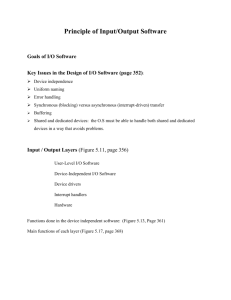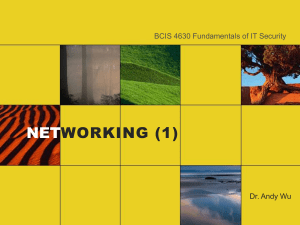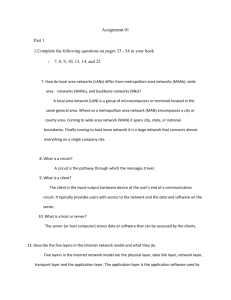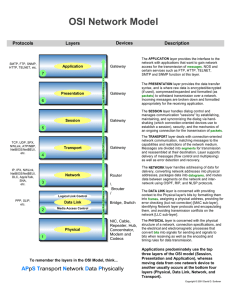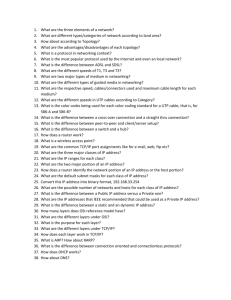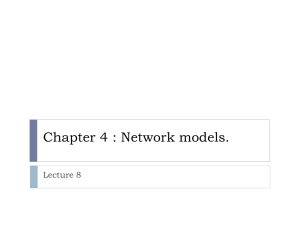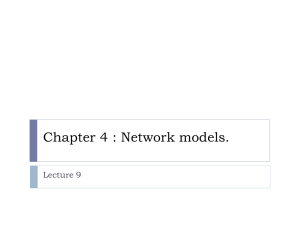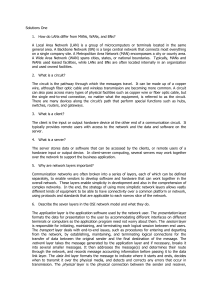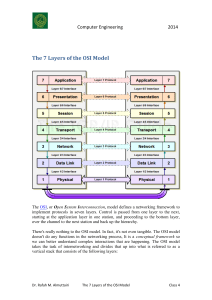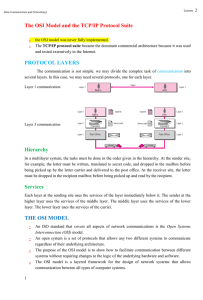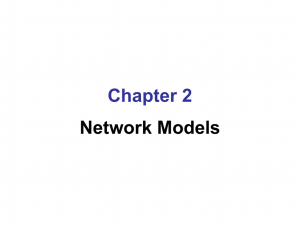OSI Model CHAPTER 3 3.1
advertisement
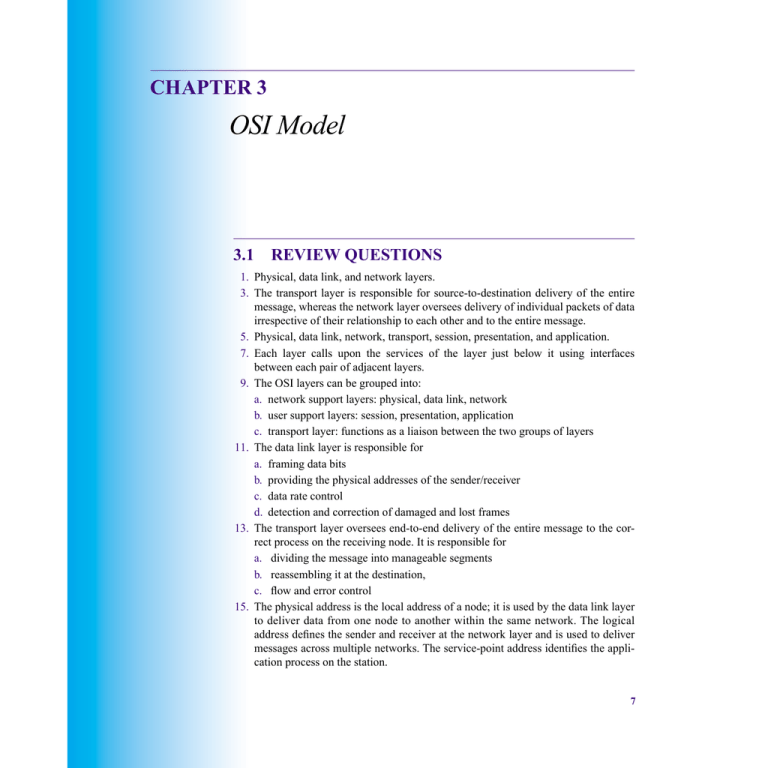
CHAPTER 3 OSI Model 3.1 REVIEW QUESTIONS 1. Physical, data link, and network layers. 3. The transport layer is responsible for source-to-destination delivery of the entire message, whereas the network layer oversees delivery of individual packets of data irrespective of their relationship to each other and to the entire message. 5. Physical, data link, network, transport, session, presentation, and application. 7. Each layer calls upon the services of the layer just below it using interfaces between each pair of adjacent layers. 9. The OSI layers can be grouped into: a. network support layers: physical, data link, network b. user support layers: session, presentation, application c. transport layer: functions as a liaison between the two groups of layers 11. The data link layer is responsible for a. framing data bits b. providing the physical addresses of the sender/receiver c. data rate control d. detection and correction of damaged and lost frames 13. The transport layer oversees end-to-end delivery of the entire message to the correct process on the receiving node. It is responsible for a. dividing the message into manageable segments b. reassembling it at the destination, c. flow and error control 15. The physical address is the local address of a node; it is used by the data link layer to deliver data from one node to another within the same network. The logical address defines the sender and receiver at the network layer and is used to deliver messages across multiple networks. The service-point address identifies the application process on the station. 7 8 CHAPTER 3 OSI MODEL 17. The dialog controller is to provide communication between devices either in a fullor half-duplex mode. 19. Translation allows interoperability between systems using different encoding methods. 21. The application, presentation, and session layers of the OSI model are represented by the application layer in TCP-IP. The lowest four layers of OSI correspond to the TCP/IP layers. 3.2 MULTIPLE CHOICE QUESTIONS 23. c 25. b 43. b 45. d 27. b 29. b 3.3 EXERCISES 47. a. b. c. d. e. transport network data link application physical a. b. c. d. e. f. presentation session data link, transport session presentation session 49. 31. b 33. a 35. a 37. c 39. b 41. d

